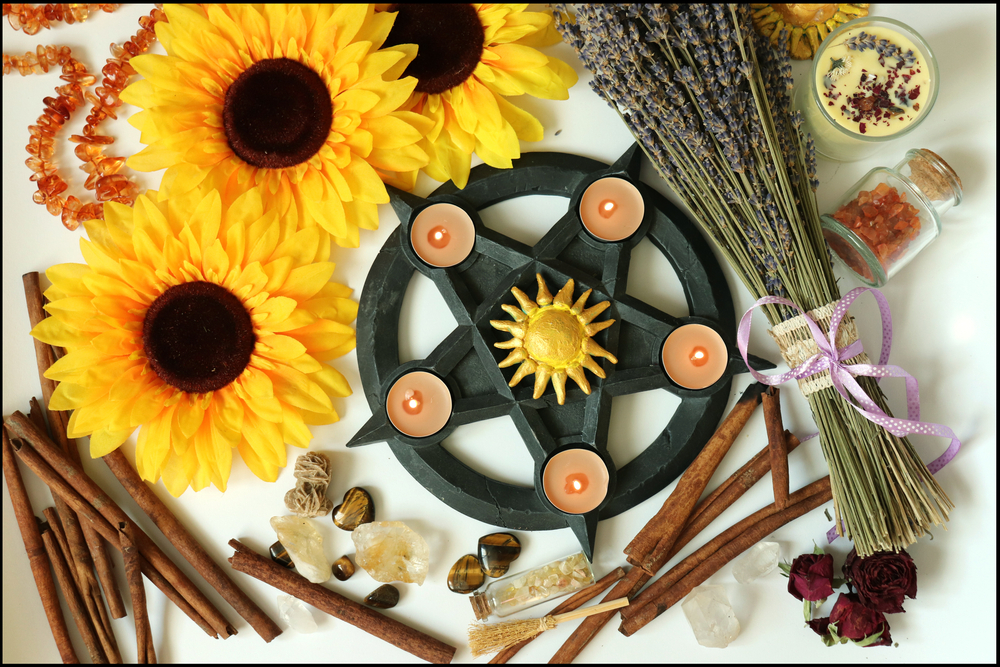
The modern neopagan calendar contains a number of significant dates that are based on early, folk-based belief sets from around Europe. While many people are familiar with the celebrations of the summer solstice and the autumn equinox, few are as aware of the celebration that occurs halfway between these two celestial events. Lughnasadh is the pagan holiday that falls in the middle of the summer and has long been associated with the earliest harvests of the season. The holiday traces its origins back to early Gaelic customs, being named after the Irish deity Lugh.
Though it may not receive as much attention as other pagan events, honoring the holiday of Lughnasadh in some capacity can be a nice way to connect to the rhythm of the natural world. Learn more about the history and customs of this event to determine how you can best celebrate it.
The Origins of Lughnasadh
The story of Lughnasadh in old Irish mythology centers around the god Lugh and his mother, Tailtiu. It is said that the goddess Tailtiu went to work one summer to clear all the fields of Ireland so that they could be used for farming. The task exhausted her so much that she collapsed and died in the fields. As a way of honoring her, Lugh was said to have created the feast of Lughnasadh as a funeral feast. Though little is known of Tailtiu, modern historians believe she was likely a goddess associated with the dense vegetation of summertime.
In addition to being a funeral event of sorts, Lughnasadh was also an athletic competition. It was said that kings from all over Ireland and surrounding territories would declare a truce in order to attend the games. Actual historical documents from this period are limited, but there are descriptions of these games in fragmented writings collected from the fifteenth century. This suggests the games were actual events that took place annually and not merely stories confined to early myths. However, it wasn’t until the eighteenth century that the actual festivities and customs would be officially documented.
The Customs of Lughnasadh
A vast majority of the traditions involved in Lughnasadh were recorded and studied between the eighteenth and twentieth centuries. Most of this research suggested the traditions witnessed had origins far earlier than this period, though many had shifted and transformed over the centuries. One main theme in many rituals involved a story that told of a struggle between Lugh and “the Crooked One.” The two fought for control of the grain of the world, with Lugh wanting to use it for the benefit of humanity and the Crooked One attempting to hoard it all.
This story would sometimes be depicted as a play or as a dance, often with the grain itself being portrayed as a maiden. Rituals during the festival would also involve revelers hiking local hills and mountains. As Christianity took over in a vast majority of Europe, the purpose of such hikes would change to reflect sacred pilgrimages. Eventually, the Christian celebration of Lammas would be born of this, though this would be celebrated in England while the Irish retained the name Lughnasadh and many of the earlier pagan customs.
A Modern Celebration
The holiday is still celebrated in modern Ireland, as well as within many neopagan groups around the world. However, it is important to note that there are big distinctions between the way the events unfold. Though there are similarities between them, modern pagans tend to borrow from a variety of older customs, whereas the Irish celebrations very closely follow the local traditions.
Celebrations like Lughnasadh are interesting because the traditions are as ancient as they are mysterious. Though the true origins of most of the customs of this feast are lost to the ages, the fact that it is still celebrated to this day shows that there is some true significance to this mid-summer event.

